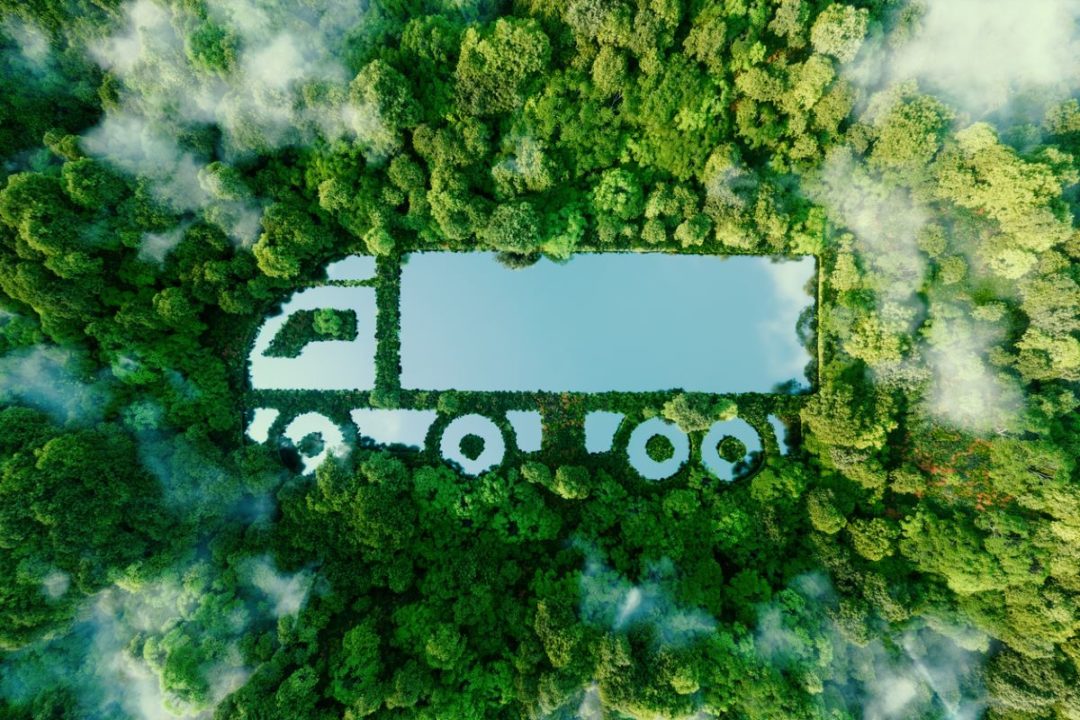
Two-thirds of the world's largest publicly traded companies have been vocal about how they plan to achieve their net-zero emissions and sustainability goals outside of consumer-facing operations. But others still lack the clear steps that are needed to get there.
Implementing a lofty sustainability program isn’t just a marketing strategy to show that your company cares about the environment, and win points with consumers. It’s an existential mandate to ensure the viability and survival of our planet and its vast ecosystem.
As one of the biggest contributors to pollution and climate change, industrial manufacturers and supply chain managers bear a large part of the responsibility for addressing the problem. With most experts warning that we must stay within the critical 1.5-degree Celsius threshold to slow the pace of climate change, that essentially means cutting industrial emissions in half by 2030.
That’s a very short runway, and it leaves no time for greenwashing and empty promises. Companies must take measurable steps toward achieving their stated goals, not only because their investors and customers demand it, but also because the world is depending upon it.
While the pandemic, supply chain hurdles and economic woes have made it more challenging for many companies to meet their stated sustainability goals, there are still opportunities to make real progress. Following are some measures that organizations can take to ensure progress toward more sustainable operations.
Take a holistic approach. Installing solar panels or recycling processed water alone won’t achieve your net-zero goals. Organizations must look at their entire operation —from supply chain to maintenance, manufacturing processes and administration — to identify decarbonization opportunities. Because there can be many hurdles, it helps to have multiple levers to pull and expectations to hold you accountable across various aspects of the business.
Invest in measurement tools. It’s difficult to prove or prioritize sustainability when you aren’t able to consistently measure the results of your efforts. By using automated monitors for heavy industrial equipment, or lighting-control systems to track energy consumption, businesses can demonstrate quantifiable improvements in energy efficiency and carbon reduction. Such metrics not only verify the results of your efforts, but can also help calculate return on investment in energy-efficient equipment. When you can show long-term benefit with empirical evidence, it turns a capital expenditure into an investment..
Establish operational policies. Infuse sustainable key performance indicators into operations and decision-making across the organization, to make environmental considerations a part of your cap ex decisions. Create consistent, well-documented policies, codes of conduct and processes to which all departments and business partners must adhere. One way to do this is to bring sustainability directors into management and purchasing decisions, so that these priorities remain top of mind.
Drive a cultural shift. By committing to concrete KPIs across the organization, companies can drive a culture shift in which managers begin thinking and acting with sustainability in mind. Some organizations even benefit from incentivizing these efforts, through executive compensation based on sustainable performance, or programs that reward management and even production staff for their ideas and efforts toward sustainability.
Future proof your investments. Shifting your culture toward sustainable operations can also help future-proof the organization. By considering equipment purchases and upgrades in light of sustainability, you can stay ahead of shifting mandates. For example, organizations might look at upgrading facility lighting to high-efficiency LED fixtures with future-ready capabilities, which can significantly lower energy consumption and the carbon footprint at all facilities.
Set benchmark expectations with suppliers. No matter what you’re doing internally, suppliers who don’t meet modern sustainability standards are holding back your net-zero and corporate social responsibility progress. Establish policies and expectations on safety records, waste management and greenhouse gas emissions that suppliers must agree to in writing. Set operating agreements and separate performance metrics to follow up on with reporting, conduct regular audits, and update your partners on any certifications you require. While some international companies may be reluctant to comply in the absence of governmental mandates, the tide is quickly turning in places like the U.K. and other European nations, who recently began pushing on due-diligence proposals and forcing organizations to clean up their supply chain operations. When bigger, multinational companies with larger purchasing power begin enforcing these expectations, smaller organizations can demand the same standards.
Be vocal. It’s essential to raise awareness about the importance of sustainable operations, and be outspoken about transparency and integrity. Make your organization’s sustainability data publicly available wherever possible, and remain vocal in your industry when speaking at trade events and in thought leadership opportunities. There’s something of a “follow-the-leader” mentality in this endeavor, and by being the company in front of the issue, you can force the industry to catch up while having a say in the standards being established. Competitive pressure is good for the environment.
Even for industries that are heavy emitters, such as oil and gas and chemical manufacturing, there are plenty of steps that can be taken to reduce the carbon footprint, and any effort, big or small, can have a positive impact on the environment. Change the organizational mindset from one of immediate gratification, rapid ROI and cost savings to one that prioritizes long-term investment, total cost of ownership and forward-thinking solutions. In the process, companies can make legitimate progress toward their sustainability goals, while also benefiting from higher-performing, longer-lasting products.
Fariyal Khanbabi is chief executive officer of Dialight.







